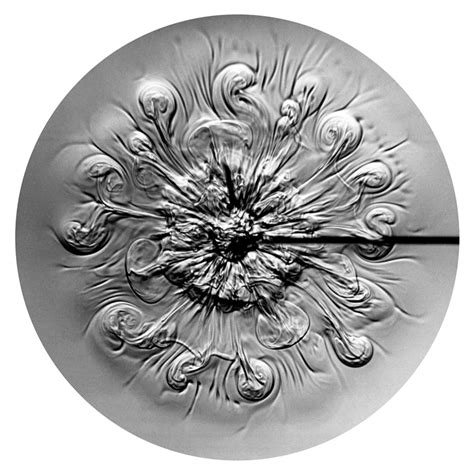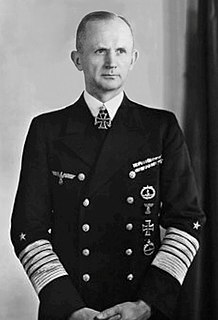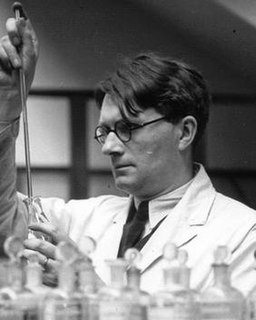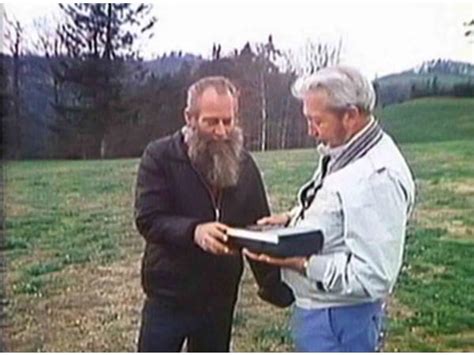Top 1200 Treading Water Quotes & Sayings - Page 18
Explore popular Treading Water quotes.
Last updated on November 17, 2024.
Where there are few people, and a great quantity of fertile land, the power of the earth to afford a yearly increase of food may be compared to a great reservoir of water, supplied by a moderate stream. The faster population increases, the more help will be got to draw off the water, and consequently an increasing quantity will be taken every year. But the sooner, undoubtedly, will the reservoir be exhausted, and the streams only remain.
There's always the possibility that you're going to come across a record that transforms your life. And it happens weekly. It's like a leaf on the stream. There are little currents and eddies and sticks lying in the water that nudge you in a slightly different direction. And then you break loose and carry on down the current. There's nothing that actually stops you and lifts you out of the water and puts you on the bank but there are diversions and distractions and alarums and excursions which is what makes life interesting really. It's fantastic.
Why, then, does water-form the very basis of life in all life's various manifestations? Because water embraces everything is in and all through everything; because it rises above the distinctions between plants and animals and human beings; because it is a universal element shared by all; itself undetermined, yet determining; because, like the primal mother it is, it supplies the stuff of life to everything living.
It is no secret. All power is one in source and end, I think. Years and distances, stars and candles, water and wind and wizardry, the craft in a man's hand and the wisdom in a tree's root: they all arise together. My name, and yours, and the true name of the sun, or a spring of water, or an unborn child, all are syllables of the great word that is very slowly spoken by the shining of the stars. There is no other power. No other name.
Some of this book—perhaps too much—has been about how I learned to do it. Much of it has been about how you can do it better. The rest of it—and perhaps the best of it—is a permission slip: you can, you should, and if you're brave enough to start, you will. Writing is magic, as much the water of life as any other creative art. The water is free. So drink. Drink and be filled up.
A man's social and spiritual discipline must answer to his corporeal. He must lean on a friend who has a hard breast, as he wouldlie on a hard bed. He must drink cold water for his only beverage. So he must not hear sweetened and colored words, but pure and refreshing truths. He must daily bathe in truth cold as spring water, not warmed by the sympathy of friends.
The capital-T Truth is about life BEFORE death. It is about the real value of a real education, which has almost nothing to do with knowledge, and everything to do with simple awareness; awareness of what is so real and essential, so hidden in plain sight all around us, all the time, that we have to keep reminding ourselves over and over: "This is water." "This is water." It is unimaginably hard to do this, to stay conscious and alive in the adult world day in and day out.
And when children begin to use their reason, fathers and mothers should take great pains to fill their hearts with the fear of God. This the good Queen Blanche did most earnestly by St. Louis, her son: witness her oft-repeated words, "My son, I would sooner see you die than guilty of a mortal sin;" words which sank so deeply into the saintly monarch's heart, that he himself said there was no day on which they did not recur to his mind, and strengthen him in treading God's ways.
Books are special, books are the way we talk to generations that have not turned up yet. The fact that we can actually, essentially communicate with the people in ancient Egypt, people in Rome and Greece, people in ancient Britain, people in New York in the 1920s who can communicate to us and change the way we think, and change the things that we believe. I think that books are special. Books are sacred. And I think that when you are selling books, you have to remember that in all the profits and loss, in all of that, you are treading on sacred ground.
No attempt of any kind must be made at rescuing members of ships sunk, and this includes picking up persons in the water and putting them in lifeboats, righting capsized lifeboats, and handing over food and water. Rescue runs counter to the most primitive demands of warfare for the destruction of enemy ships and crews. Be hard, remember that the enemy has no regard for women and children when he bombs German cities.
Capturing the beauty of the conversion of the water into wine, the poet Alexander Pope said, "The conscious water saw its Master and blushed." That sublime description could be reworked to explain each one of these miracles. Was it any different in principle for a broken body to mend at the command of its Maker? Was it far-fetched for the Creator of the universe, who fashioned matter out of nothing, to multiply bread for the crowd? Was it not within the power of the One who called all the molecules into existence to interlock them that they might bear His footsteps?
Every child should have mud pies, grasshoppers, water bugs, tadpoles, frogs, mud turtles, elderberries, wild strawberries, acorns, chestnuts, trees to climb. Brooks to wade, water lilies, woodchucks, bats, bees, butterflies, various animals to pet, hayfields, pine-cones, rocks to roll, sand, snakes, huckleberries and hornets; and any child who has been deprived of these has been deprived of the best part of education.
Intentions are a lot like seeds. You shove them into the ground, and every once in awhile, you water them. Largely, the seed does most of the work on its own. If, on one hand, you were digging the seed up several times a day to see what progress was being made, the seed would not take purchase in the soil. On the other hand, if you completely ignored it, giving no water or nourishment to the soil, the seed might not thrive.
People usually consider walking on water or in thin air a miracle. But I think the real miracle is not to walk either on water or in thin air, but to walk on earth. Every day we are engaged in a miracle which we don't even recognize: a blue sky, white clouds, green leaves, the black, curious eyes of a child -- our own two eyes. All is a miracle.
... laws governing pollution tend to move pollutants from one medium to another. So, for example, we scrub SO2 from power plants only to dispose toxic sludge on land. We "clean" water only to disperse toxic-laced solids on farmland or landfills. Pollution control becomes a kind of giant shell game by which we move pollutants between air, water, groundwater, and land.
The house as I say ... smelled of brisket and bourbon, so you could hear that. I started imitating them. Phrases came out of that, "Can't you dig that?" "I knew that you would." We were at [Passover] Seders and they were confused with the bitter herbs, "Do we smoke these or do we do we dip them in salt water?" "We dip them in salt water, well that's gonna kill the vibrancy of the weed, you know." So that's what I was around. So I would imitate them. That's where it all started.
Methinks we have hugely mistaken this matter of Life and Death. Methinks that what they call my shadow here on earth is my true substance. Methinks that in looking at things spiritual, we are too much like oysters observing the sun through the water, and thinking that thick water the thinnest of air. Me thinks my body is but the lees of my better being. In fact take my body who will, take it I say, it is not me.
The theory which I would offer, is simply, that as the land with the attached reefs subsides very gradually from the action of subterranean causes, the coral-building polypi soon raise again their solid masses to the level of the water: but not so with the land; each inch lost is irreclaimably gone; as the whole gradually sinks, the water gains foot by foot on the shore, till the last and highest peak is finally submerged.
Nothing is nicer than diving with your eyes open. Diving down as far as the shimmering legs of your mother and father who have just come back from swimming and now are wading to shore through the shallow water. Nothing more fun than to tickle them and to hear, muffled by the water, how they shriek because they know it will make their child happy.
I carefully lay out the provisions. One thin black sleeping bag that reflects body heat. A pack of crackers. A pack of dried beef strips. A bottle of iodine. A box of wooden matches. A small coil of wire. A pair of sunglasses. And a half-gallon plastic bottle with a cap for carrying water that's bone dry. No water. How hard would it have been for them to fill up the bottle?
Most men will not swim before they are able to.' Is not that witty? Naturally, they won't swim! They are born for the solid earth, not for the water. And naturally they won't think. They are made for life, not for thought. Yes, and he who thinks, what's more, he who makes thought his business, he may go far in it, but he has bartered the solid earth for the water all the same, and one day he will drown.
The miraculous is not extraordinary but the common mode of existence. It is our daily bread. Whoever really has considered the lilies of the field or the birds of the air and pondered the improbability of their existence in this warm world within the cold and empty stellar distances will hardly balk at the turning of water into wine which was, after all, a very small miracle. We forget the greater and still continuing miracle by which water (with soil and sunlight) is turned into grapes.
Golf has an ambivalent relationship with the environment. On one hand, it's a great preserver of open spaces. Golf doesn't pave the world - it helps to green the world. But the downside is, it uses a lot of fertilizer, pesticides and water. And this is in a world where we know that synthetic fertilizers and pesticides are toxic, and water is more and more scarce. Golf could do a lot more.
To put it in a nutshell, the Central and South American high cultures of antiquity were entirely worthy of comparison with what the Old World had achieved by the time of the Han, the Gupta, and the Hellenistic age. The fact is that the Amerindian high cultures were a human modality of their own, and those Spaniards who came among them first would have had the sensation, if they had ever heard of such literature, of treading in a world of imaginative science fiction. But it was real, and the Amerindian achievements deserve all our sympathy and praise.
POTABLE, n. Suitable for drinking. Water is said to be potable; indeed, some declare it our natural beverage, although even they find it palatable only when suffering from the recurrent disorder known as thirst, for which it is a medicine. Upon nothing has so great and diligent ingenuity been brought to bear in all ages and in all countries, except the most uncivilized, as upon the invention of substitutes for water. To hold that this general aversion to that liquid has no basis in the preservative instinct of the race is to be unscientific-and without science we are as the snakes and toads.
A continent ages quickly once we come. The natives live in harmony with it. But the foreigner destroys, cuts down the trees, drains the water, so that the water supply is altered, and in a short time the soil, once the sod is turned under, is cropped out and, next, it starts to blow away as it has blown away in every old country and as I had seen it start to blow in Canada. The earth gets tired of being exploited.
Earth as we know it came into being through its four great components: land, water, air, and life, all interacting in the light and energy of the sun. Although there was a sequence in the formation of the land sphere, the atmosphere, the water sphere, and the life sphere, these have so interacted with one another in the shaping of the Earth that we must somehow think of these as all present to one another and interacting from the beginning.
I keep thinking about this river somewhere, with the water moving really fast. And these two people in the water, trying to hold onto each other, holding on as hard as they can, but in the end it's just too much. The current's too strong. They've got to let go, drift apart. That's how it is with us. It's a shame, Kath, because we've loved each other all our lives. But in the end, we can't stay together forever.
If you take a glass of water and separate it from its source - the ocean - then pour the water away from its source and ask it to sustain life, it flitters away. It just evaporates. It can't sustain life. That's a metaphor for us when we separate ourselves from our source and believe that God is separate from us.
The government sent the Indians to Oklahoma. They had a treaty that said, 'You shall have this land as long as grass grows and water flows.' It was not only a good rhyme but looked like a good treaty, and it was till they struck oil. Then the Government took it away from us again. They said the treaty only refers to 'Water and Grass; it don't say anything about oil.'
...wordless conditioning is crude and wholesale; cannot bring home the finer distinctions, cannot inculcate the more complex courses of behavior. For that there must be words, but words without reason... Not so much like drops of water, though water, it is true, can wear holes in the hardest granite; rather, drops of liquid sealing-wax, drops that adhere, encrust, incorporate themselves with what they fall on, till finally the rock is all one scarlet blob.
One thing I loved about New Zealand was the indoor/outdoor lifestyle of the place. I remember going from Xboxing, jamming out on guitars and drum machines in my buddy's apartment, to a bike ride through the parks and up and down the streets all over the city, to the ocean, right into the water. I remember we were swimming outer ways and we got to a certain place where we wanted to see - or I wanted to see - how deep the water was.
Water is two parts hydrogen and one part oxygen. What if someone says, “Well, that’s not how I choose to think about water.”? All we can do is appeal to scientific values. And if he doesn’t share those values, the conversation is over. If someone doesn’t value evidence, what evidence are you going to provide to prove they should value it? If someone doesn’t value logic, what logical argument could you provide to show the importance of logic?
I often feel like saying, when I hear the question 'People aren't ready,' that it's like telling a person who is trying to swim, 'Don't jump in that water until you learn how to swim.' When actually you will never learn how to swim until you get in the water. And I think people have to have an opportunity to develop themselves and govern themselves.
You've been so long in the rain, you feel like a dirty dish rag. But despite the misery of your water soaked body, you look around to see verdant leaves dripping with water. The air entering your lungs smells vibrantly clean. To experience adventure, you must be willing to be uncomfortable at times and enjoy the loneliness by being happy with your own singing. A song pops out of your mouth... "It rained all night the day I left, the weather it was fine..."
I have a deep-down belief that there are folks in the world who are good through and through, and others who came in mean and will go out mean. It's like coffee. Once it's roasted, it all looks brown. Until you pour hot water on it and see what comes out. Folks get into hot water, you see what comes out.
There are these two young fish swimming along and they happen to meet an older fish swimming the other way, who nods at them and says 'Morning, boys. How's the water?' And the two young fish swim on for a bit, and then eventually one of them looks over at the other and goes 'What the hell is water?'
I’d heard about the Baptists from Jacob Henry’s mother. According to her, Baptists were a strange lot. They put you in water to see how holy you were. Then they ducked you under the water three times. Didn’t matter a whit if you could swim or no. If you didn’t come up, you got dead and your mortal soul went to Hell. But if you did come up, it was even worse. You had to be a Baptist.
Turbulence.” This is what pilots announce that you have encountered when your plane strikes an object in midair. You'll be flying along, and there will be an enormous, shuddering WHUMP, and clearly the plane has rammed into an airborne object at least the size of a water buffalo, and the pilot will say, “Folks, we're encountering a little turbulence.” Meanwhile they are up there in the cockpit trying desperately to clean water-buffalo organs off the windshield.
Titan has no liquid water on its surface, and any liquid water beneath its surface is inaccessible to us, as far as we know. It has hydrocarbon lakes, but we don't know of any organisms that could live in those, not at the temperatures that we find on Titan. Any reference to possible life in lakes on the surface of Titan is pure speculation.
One of the great things about the old days of television, 10 years ago, or 15 years ago, was that it was water cooler television. People would communally watch the same hour. People used to tell us all the time, we turn off the phones, we put the kids to bed and that one hour is uninterrupted. Then, the next day at the water cooler, they all talk about it.
I had three toy buckets, and I would put hot water in them because we weren't allowed to sit in the jacuzzi - we weren't old enough - so I would charge people $1, and everyone would line up, and everyone would sit in this disgusting hot water-sand-filled thing, and I would get $1 and go to the snack bar and get an Oreo.
When the mind is turbulent, uncontrolled and restless, it is like a pond of water that is filled with mud. Therefore when we look within ourselves, all we perceive is the mud of our material conceptions of life. But when the mind is still through discipline, and through yoga, it is like a pond that has no waves and no turbulence. Then we can perceive through that crystal clear water the eternal nature of our soul.
Landscapes of great wonder and beauty lie under our feet and all around us. They are discovered in tunnels in the ground, the heart of flowers, the hollows of trees, fresh-water ponds, seaweed jungles between tides, and even drops of water. Life in these hidden worlds is more startling in reality than anything we can imagine. How could this earth of ours, which is only a speck in the heavens, have so much variety of life, so many curious and exciting creatures?
At first, when a child meets something that scares him, the fear grows, like a wave. But when he goes into the water and swims - gets used to the water - the wave grows small. If we pull the child away when the wave is high, he never sees that, never learns how to swim and remains afraid. If he gets a chance to feel strong, in control, that's called coping. When he copes, he feels better.
I have little space from the suffering of elephants right now. I wake up with it and go to sleep with it. The plight of animals in shelters, of kids used for labor for the metals in our electronics and endless other things, the fate of our water supply to dye our blue jeans and water our lawns, the sad painful life of conventionally raised meat...For me, I am working to not contribute to this. I really don't want to hurt others for my benefit.
I know how bad a thing it is to be a slave and I know how terrible it was but I don't believe that there's a free person in the whole world that knows how good a cup full of water can taste. Because you have to be a deprived slave, to be kept waiting for your water like we were to really appreciate how good just one swallow can be. When we finally got a drop on our tongues it was like something straight from the hands of the Almighty.
Apart from the obvious advantages of having ice to melt, filter, then drink, you can also break apart the water's hydrogen from its oxygen. Use the hydrogen and some of the oxygen as active ingredients in rocket fuel and keep the rest of the oxygen for breathing. And in your spare time between space missions, you can always go ice skating on the frozen lake created with the extracted water.
The Himalayan Glaciers on the Tibetan Plateau have been among the most affected by global warming. The Himalayas...provide more than half of the drinking water for 40% of the world's population...Within the next half-century, that 40% of the world's people may well face a very serious drinking water shortage, unless the world acts boldly and quickly to mitigate global warming.
I had no fear of the stream's perils, and I listened with the greatest contentment to the quiet slap of water on rocks, the running whisper of the current, and the taps and creaks and croaks that rose with the mist around me. Overhead swing the glittering stars, and the bright moon shone down and lit the curling ripples of the water. At no time in my life had I been in greater danger from the elements, and yet if I learned that heaven is such as that night was, I should deem it a joy worth the dying.
The fortunate and successful New Urbanists will be the ones who can find local infill projects in small towns and small cities associated with farming, water transport, (perhaps rail too) and water power. I do not believe personally that we will retrofit much of suburbia in the way many people wish we might. The capital won't be there, and I'm rather convinced that the population is headed down - though this will be a lagging effect, because even starving people have sex.
























































